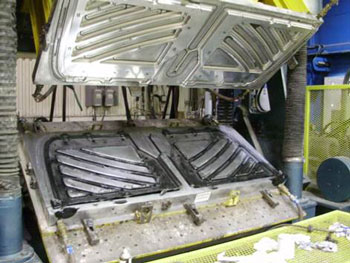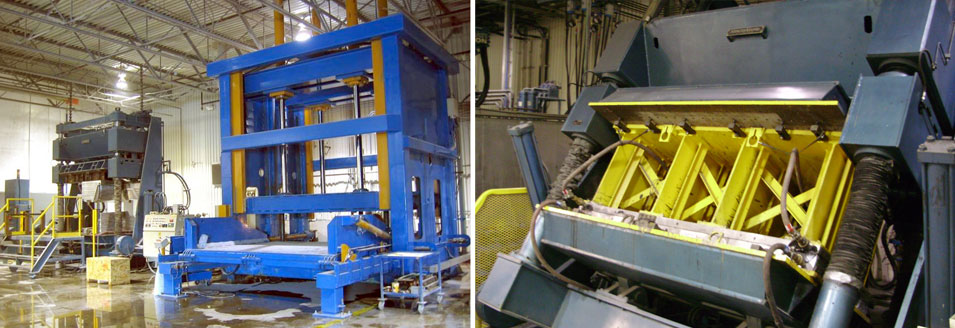
Process: A family of lightly cross-linked, olefinic thermoset polymers based on poly-dicyclopentadiene (P-DCPD) with mechanical properties similar to engineering thermoplastics. RMC molds both Metton LMR™ and Telene™ in which two, low-viscosity P-DCPD liquid streams - one containing an activator (A) and the other a catalyst (B) - are impingement mixed at a 1:1 ratio and injected at near room temperature into a closed mold mounted in a press. The resulting exothermic reaction creates a fully polymerized part in less than 60 seconds. Button to button cycle times are generally 4 to 6 minutes depending upon size and geometry.
The low viscosity of the liquid components allows the molding of very large parts with surface areas up to 13 m² (120 ft²) or several hundred kilograms (pounds).
Tooling: Production molds are typically CNC-machined aluminum. Machined aluminum molds are better suited to parts having shallow geometry due to machining costs and wasted material. Prototyping: RMC has developed a proprietary process for molding up to 10 prototype parts in DCPD or PU. A new, low-volume DCPD molding technology has also been developed that is capable of forming up to 1000 production-quality parts with a Class “A” finish.

